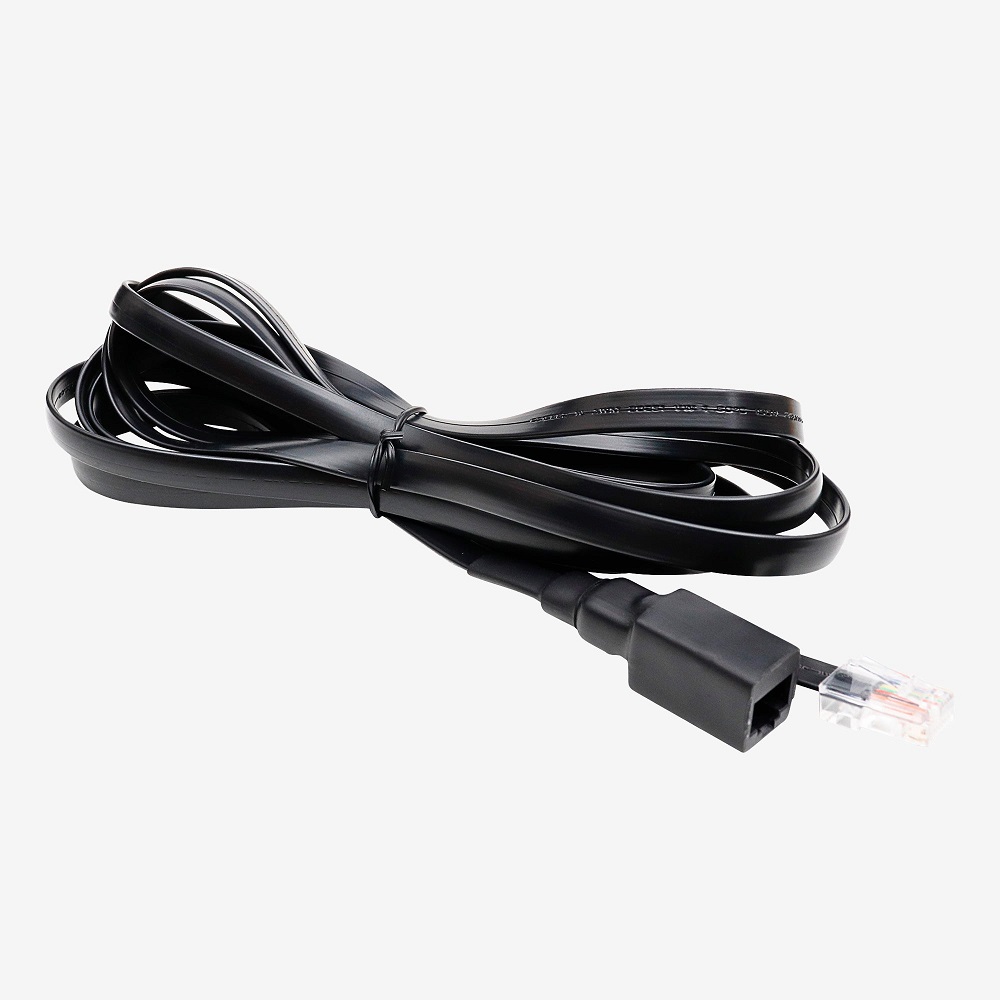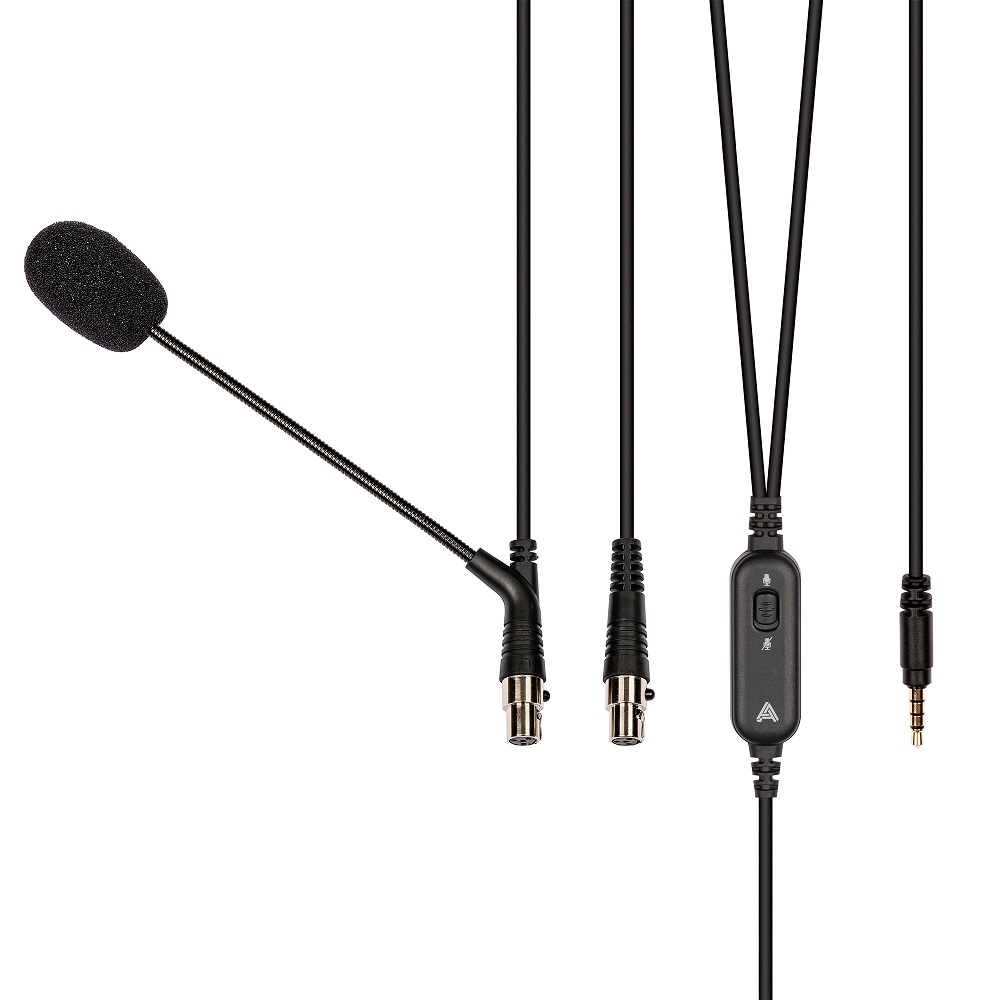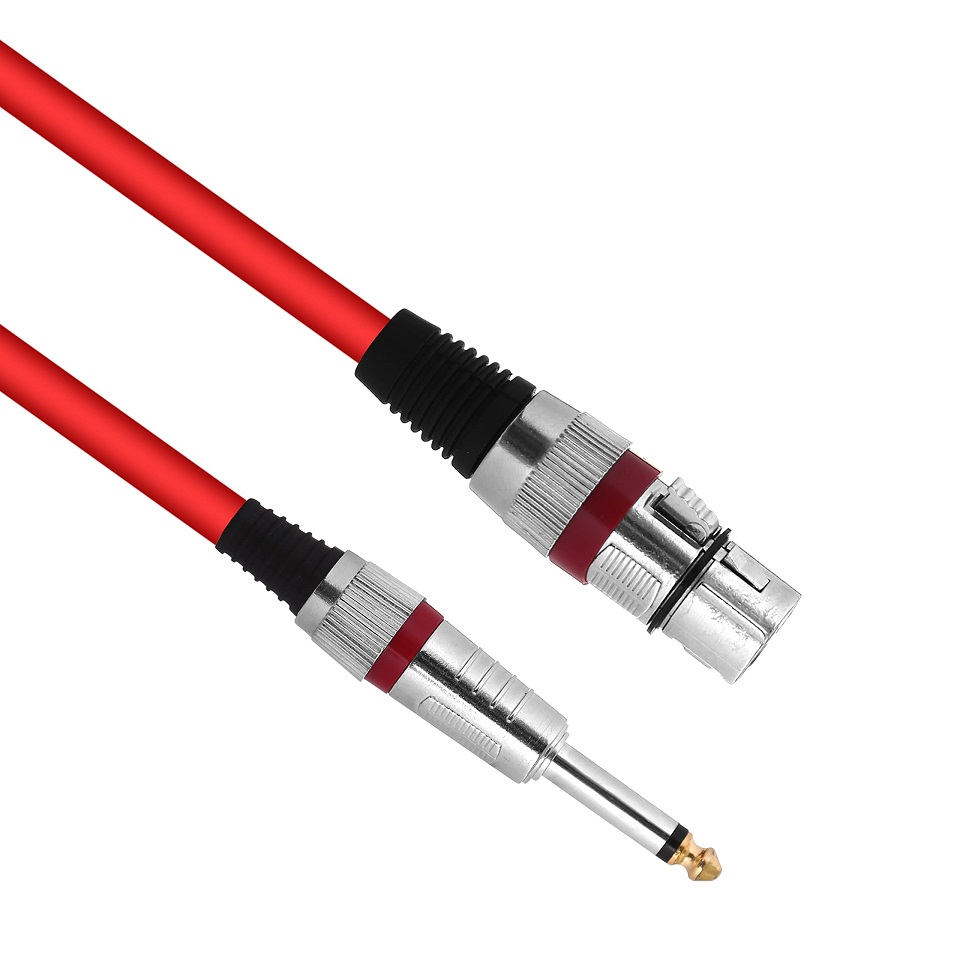Understanding Mic Cable Basics
To achieve the best audio quality, understanding the basics of mic cables is essential. Mic cables play a crucial role in the reliability and performance of your audio equipment.
Types of Mic Cables
There are several types of mic cables to choose from, each suited for different scenarios. The most common types include XLR cables, which are known for their balance and interference resistance, and TRS cables, which are used for both mono and stereo connections. Additionally, you can find TS cables that are typically used for mono signals such as guitar outputs.
The Importance of Cable Shielding
Cable shielding is critical for reducing electromagnetic interference (EMI) and radio-frequency interference (RFI). Proper shielding ensures that your audio signal remains clean and free from external noises, which is vital for both studio recordings and live performances.
Balanced vs Unbalanced Cables
Choosing between balanced and unbalanced cables depends on your needs. Balanced cables, such as XLR and TRS, are designed to minimize noise, making them ideal for long cable runs. Unbalanced cables, like TS cables, are more susceptible to noise and are better suited for shorter distances. Knowing the difference can significantly affect your audio setup’s performance.
Factors to Consider When Choosing a Mic Cable
Choosing the right mic cable involves several key factors. Each aspect plays a role in the final sound quality and reliability of your audio setup. Let’s delve into the essential factors you need to consider.
Cable Length and Signal Quality
The length of the mic cable directly affects the signal quality. Long cables can result in signal loss and potential interference. It is crucial to choose a length that suits your specific needs without compromising audio integrity. For shorter distances, standard lengths suffice; for longer runs, opt for high-quality, balanced cables to ensure clarity.
Connector Types: XLR, TRS, and Others
Connectors are critical for ensuring good connectivity and compatibility with your audio equipment. The most common types are:
- XLR connectors, which offer balanced connections ideal for microphones.
- TRS connectors, suitable for balanced audio signals and headphones.
- TS connectors, typically used for instruments like electric guitars. Choosing the right connector type enhances compatibility and reduces noise issues.
Durability and Flexibility
A durable cable withstands regular use and environmental factors, prolonging its lifespan. Flexibility is also essential; a flexible cable is easier to handle and reduces the risk of damage when coiling or uncoiling. Always inspect the build quality — sturdy, well-constructed cables are a worthwhile investment for any sound engineer or musician.
The Impact of Mic Cables on Sound Quality
The quality of your mic cable can significantly influence your audio output. With the right cable, you can ensure clarity and longevity in performance. Let’s explore how the construction of mic cables affects sound and dispel some myths surrounding the topic.
How Cable Construction Affects Audio
The material used in mic cables directly impacts audio quality. Oxygen-free copper, for example, is a popular choice for reducing resistance and improving signal flow. The way a cable is shielded also plays a huge role, as it protects the signal from interference from other electronic devices and ambient noise. As a result, well-constructed mic cables can preserve the originality and crispness of the sound, whether in a studio setting or live performance.
Myths vs. Facts about Cables and Sound
There are several myths about mic cables that need clearing up. First, it’s a myth that more expensive cables always offer better quality. While build quality often correlates with price, the suitability of a cable for specific needs is more important. Another common myth is that the thicker the cable, the better the sound insulation. In reality, it’s the quality of the shielding and not just the thickness that matters. Understanding these facts helps in making informed decisions when choosing the right mic cable for your audio needs.
Top Recommended Mic Cables for Various Uses
Selecting the correct mic cable enhances audio quality and ensures durability. Here are top choices tailored to different scenarios.
Studio Recording
For studio recording, look for high-quality XLR cables with excellent shielding. They must minimize interference and deliver a clean signal over long distances. Oxygen-free copper cables are a solid choice for the purest sound. Mogami Gold Studio XLR and Neumann IC3mt are highly regarded in the industry.
Live Performances
Live shows demand rugged cables that can handle movement and varying conditions. Dependable XLR cables with durable jackets and robust connectors, like the Shure SM58-XLR, ensure reliable performances. For a balance of quality and cost, consider the Livewire Advantage Series.
Everyday Use and Practice
For daily use, affordable yet reliable cables are key. The AmazonBasics XLR Cable offers a cost-effective solution without sacrificing too much quality. For practice setups, the Hosa Pro Series XLR cable provides a decent balance between cost and durability.
Custom Mic Cables vs. Pre-Made Options
Choosing between custom mic cables and pre-made options is a crucial decision. Your needs determine which is suitable for you.
When to Consider Custom Cabling Solutions
Custom cabling might be the right choice for specific requirements. You should consider custom cables if:
- Standard lengths do not fit your setup.
- You need unique connectors not commonly available.
- Custom colors or branding is required for your business or venue.
- Specialized technical requirements, such as unique shielding or specific impedance, are needed for optimal performance.
Going custom allows for the perfect fit and function but usually comes at a higher cost.
Understanding Pre-Made Cable Grades
Pre-made mic cables come in different grades:
- Consumer Grade: These are the most affordable but may compromise on quality. Good for light use and those on a tight budget.
- Professional Grade: Higher quality materials, durability and better audio fidelity. Suited for serious musicians and recording studios.
- Premium Grade: Top-of-the-line materials and construction. For audio perfectionists who seek the best quality without budget constraints.
Most users will find a suitable solution among pre-made cables. They offer convenience and immediate availability.
Tips for Maintaining Your Mic Cables
Proper care of mic cables can extend their life and maintain sound quality. Here’s how to keep them in top shape.
Proper Coiling Techniques
Correct coiling prevents kinks and preserves the cable’s integrity. Use the “over-under” method to coil cables. This technique alternates the direction of each loop, avoiding twists. Finish with a Velcro tie to secure the coil without pinching.
Avoiding Common Wear and Tear
Handle connectors with care; they are the weakest points. Don’t yank cables out by the wire. Always disconnect by gripping the plug. Avoid stepping on cables or running them across sharp edges. Route cables away from foot traffic and sharp corners.
Cleaning and Storage Advice
Keep cables clean by wiping them with a dry cloth after use. For more stubborn grime, a damp cloth with mild soap can be used; dry thoroughly afterward. Store cables in a dry, cool place. Hang them loosely from a hook or store them in a cable bag to prevent tangles and twists.
Resources and Brands to Consider
To make the best choice when selecting a mic cable, consider the brands renowned for quality and reliability. Professional audio brands offer cables engineered for top performance.
Recommended Brands for Professional Audio
Popular brands that professionals often trust include Mogami, Neumann, Shure, and Livewire. These brands stand out for their superior build and sound quality. Mogami is known for high-end studio cables, while Neumann excels in producing cables with exceptional clarity. Shure offers robust cables ideal for live performances, and Livewire provides a good balance of quality and affordability.
Where to Buy Quality Mic Cables
Quality mic cables are available at music stores, electronics retailers, and online marketplaces. For hassle-free shopping, consider online stores like Amazon, Sweetwater, and B&H Photo Video. These platforms often feature customer reviews, which can help guide your purchase.
Additional Learning Resources and Communities
Expand your knowledge by tapping into online forums and communities like Gearslutz or the Sound Engineering subreddits. Websites like Sound on Sound provide in-depth articles, and YouTube channels such as Wavywayne or Booth Junkie offer tutorials on mic cables and audio setup.



